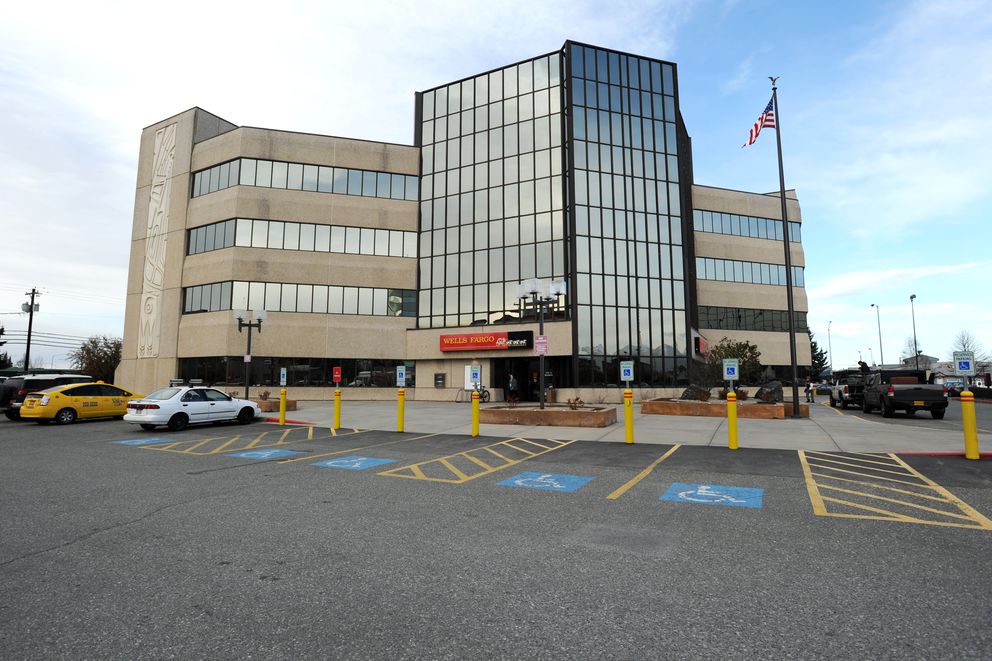The Alaska Supreme Court on Friday dismissed a lower court's sanction against an Anchorage attorney who sought a whistleblower payment for saving the state millions of dollars though a lawsuit.
Though no state law provides for such a payment, the Supreme Court ruled that attorney Jim Gottstein's claim against the state amounted to "creative advocacy" and was not "frivolous."
The 4-1 ruling, written by Justice Peter Maassen, stems from a lawsuit filed in 2015 by Gottstein challenging a no-bid lease extension by the Alaska Legislature for its downtown Anchorage office space on West Fourth Avenue.
Gottstein won and the lease was ripped up by Anchorage Superior Court Judge Patrick McKay. The Legislature abandoned its renovated building downtown and moved to a less expensive building in Spenard.
Gottstein said he was entitled to a whistleblower award of 10 percent of the money saved by the Legislature, much like a successful party can win though the federal False Claims Act. But McKay rejected his request, and sided with legislative attorneys in deeming it "frivolous."
Maassen, in Friday's decision, acknowledged that Gottstein's argument for whistleblower damages "stood little likelihood of success" because there was no direct support for it in precedent or Alaska law. But, Maassen added, it wasn't frivolous, because it didn't appear to be an abuse of the judicial process as there was no evidence Gottstein intended to "delay, harass, or increase the costs of litigation."
Gottstein owns a downtown Anchorage building adjoining another that once housed state lawmakers. The lawmakers had signed a no-bid lease extension with their developer that provided for expensive renovations and a steep price increase.


Gottstein's suit challenged the extension, saying that it should have been competitively bid as a new lease.
Gottstein appealed on the fee issue, saying in an interview Friday that he was "offended" that his argument was deemed frivolous.
The Supreme Court sided with Gottstein, saying that while his claim appeared to face long odds, it didn't appear to be made for an "improper purpose" — both of which are normal criteria for sanctions, Maassen wrote.
In fact, Gottstein's argument — that awarding a percentage of savings can help address government misconduct — was indirectly supported by the lower court's decision in the case, which said that allowing the no-bid lease would "eviscerate the competitive principles of the state procurement code," Maassen said.
Justice Joel Bolger was the lone dissenting justice.
In its ruling, the Supreme Court used sweeping language to support the idea that a citizen should be allowed to halt improper government practices. In acknowledging the "value of public interest litigation," the decision took note of Gottstein's claims that Alaskans should have a similar economic incentive to challenge "illegal" claims to payments like that provided in the federal False Claims Act.





Alaska Dispatch News uses Civil Comments. Please keep your comments on-topic, focus on the issue and avoid personal insults, harassment and abuse. Read the user guide.
Alaska Jim
2 days ago
Nice job, though I reckon his motives were for his own bottom line. He kept them honest and this was definitely NOT an honest deal. All those involved should be sanctioned and removed from "Juneau" if any are left. Good job sir!
rrwillsj
1 day ago
Okay, I can understand the commentators congratulating Mr. Gottstein for his sagacity. I can understand the Supreme Court's decision as having some merit for theoretical justice.
However, I do not understand intervening between two business interests and the legislator's prerogative to be influenced. I suspect, down the road, there will be unforeseen consequences that will please no one.
And worst! If the award was extracted from the plaintiffs involved in the shenanigans? I would not complain. But this award will be payed out of every taxpayer's pocket, including the above commentators!
Jim Gottstein
1 day ago
I am not getting an award, other than 20% of attorney's fees. The Supreme Court just reversed the trial court's determination that the claim for 10% of the savings was frivolous and thus sanctionable under Civil Rule 11. I saved the State at least $10 million by having the lease declared illegal and risked a substantial fee award against me if I had lost.
Paul Winkler
22 hours ago
Kudos Jim.....
rrwillsj
20 hours ago
In reply to:
I am not getting an award, other than 20% of attorney's fees. The Supreme Court just reversed the trial court's determination that the claim for 10% of the savings was frivolous and thus...
— Jim Gottstein
Jim, thank you for replying to my comment. And thank you for clarifying the percentage of your award/fees.
I am not complaining about what you have accomplished. Not about the Alaskan Supreme Court's decision.
What I am complaining about is this all too common failure to comprehend that ALL the amounts awarded by the courts? To whistleblowers and the victims of official misdeeds... No matter how they are prettied up, the money will be paid by the taxpayers, all of us!
And for those who abused their authority? Will walk away safe from any penalty. jeering at the mild reprimands of judicial censure.
Better luck next time fellas! At scamming the suckers who voted for you.
Erik "Moe" Johnson
2 hours ago
In reply to:
Okay, I can understand the commentators congratulating Mr. Gottstein for his sagacity. I can understand the Supreme Court's decision as having some merit for theoretical justice. However, I do...
— rrwillsj
I've lived in Alaska since 1974 and I don't recall EVER paying any taxes to the state... Whose pocket are you referring to?
John McDowell
2 days ago
A very important ruling I would think. Crooks are crooks, and any citizen who exposes them to the public light of day by patiently winding through the legal system in Alaska, and saving large public sums... deserves a reward. A percentage of the money saved by the state because of the citizen`s diligence seems fair. White collar Josh Randall`s.. we could use more of them. Especially in the oily legislature. Thank you Mr. Gottstein.
Janette Banie
2 days ago
Thank you Mr. Gottstein.
Rick Knowles
6 hours ago
This is the government we get when we allow it to conduct its business in private; local, state or federal. Two reasons why it is inevitable this will reoccur. No penalties, no incarcerations. The glass house assessment should be invoked prviding mr Gottstein an ample reward for righting this terrible criminal act, and examples should be made of all those having any knowledge and involvement.
Lynn Willis
2 days ago
The Legislature did blatantly: "eviscerate the competitive principles of the state procurement code,", and got away with it. At least Jim Gottstein has served to shine the light of checks and balances on the Alaska Legislature who refuse to self discipline themselves and can depend on an appointed Attorney General to look the other way to protect the political interests of the Governor who appoints the A.G.